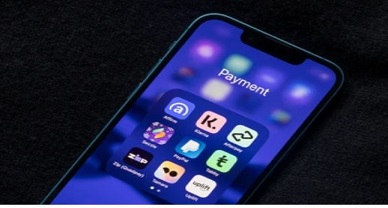Unpacking The Rbi’s Disallowance Of Credit Loading By Bnpl Companies: Impact, Operations, And Regulatory Concerns
INTRODUCTION
A buy now, pay later plan (BNPL) is a loan offered to a customer at the point of sale so they can purchase items on credit but without a credit card. This Credit system in India has saw a massive growth of 569% in 2020 and 637% in 2021. But recently on 20th June 2022 The Reserve Bank of India made an announcement that shock the entire BLPL industry, this notification disallowed Non-Banks prepaid wallets and prepaid cards from loading credit lines into these platforms, in simple words this is a huge blow to some of the fastest growing Indian start up like Amazon pay later, Paytm postpaid, Slice, Uni card, Jupiter card. Until now all these fintech companies has played a vital role in digitization of money and financial inclusion of all those people in India who are not eligible to hold a credit card and allowing these people to experience a service of credit card by giving them a loan on line of credit.
So, the question is what is the problem with buy now pay later industry that RBI has to take such a harsh action to disallow these industries to give credit to the people despite knowing that these companies are growing in such a rapid speed.
Before diving deep into the issues between The Reserve Bank of India and BNPL industries first let’s understand how these BNPL apps work and how they execute credit to the general public.
FUNCTION OF BNPL COMPANIES
In India the credit cards can be issued only by Banks that is Most Scheduled Commercial Banks (SCBs) with a net worth of Rs. 100 crores can issue credit cards. The exception herein is Regional Rural bank which need to be collaborate with other schedule banks to do so. But the question is where do these BNPL companies stand in and how they are issuing a credit system when they are not authorized to do so and do not have a license for the same.
In India if we generally see the base level from which a credit card is given to the person his income must be greater than 1.44 lakh per annum and the credit limit is given to him is between 25,000 to 30,000 Rs. But people whose income is below than 1.44 lakh there was no reliable credit instruments for these people exists. It is in this condition Fintech companies like amazon pay, Jupiter, slice, Paytm postpaid comes under the picture and fill the credit gap of Indian people below this above given income slab.
[Image Sources: Shutterstock]
For example, if a student wants to buy a pair of shoes which belongs to Puma company which is worth of rupees 3000 Rs but his pocket money is just 2000 Rs and he does not hold a credit card eventually he cannot buy these shoes considering his financial condition but here BNPL companies comes in and give him a credit of Rs 3000 and with this credit he buys those Puma shoes.
So, basically, where in first only ten rich kids can afford these Puma shoes now more kids can afford these shoes by using these BNPL service and this service provider earns by charging an interest on the payment or by charging a late fee repayment or by charging an interest on the merchandise company for providing customers.
But there is one question which arises from the functions of BNPL companies, it is that –
How these companies are giving a credit when they do not have a Prepaid payment instrument (PPI) License.
So, answer to the above question will be that the BNPL apps are only authorized to issue a prepaid wallet and a prepaid card under which a person can add money from his Bank to his virtual wallet and can use that wallet for transactions some examples of prepaid wallets are Phone pay wallet, Paytm wallet etc. But they do not a PPI license due to which they cannot offer credit among the people so what they do they usually tie up with Banks and NBFC who have a PPI license and work as a middle man and offer credit lines into their prepaid wallets.
WHAT IS PPI
The RBI defines Prepaid Payments Instrument as a payment instrument that facilitate the buying of goods and service, including the transfer of funds, financial service, and remittances, against the value stored within or on the instrument.
PPIs are in form of payment wallets, smart cards, mobile wallets, magnetic chip, vouchers, etc. As per the regulations only Banks and NBFC can issue the PPI.
WHAT IS LINE OF CREDIT
A credit line is a present borrowing limit that allows an individual or a business access to credit at any time, as per need. It can be used by the customer for purchasing till the limit offered is not exceeded. An LOC is a method between a bank and a customer that establishes the maximum loan amount that the customer can borrow. The consumer can access his funds from the LOC at any time as long as they do not exceed the maximum amount that is credit limit set in the agreement.
PROBLEM WITH BNPL COMPANIES
RBI banned the loading of credit by BNPL companies on their prepaid wallets and prepaid cards, don’t you think that why RBI has taken this decision and why RBI is against these companies who are growing in such a rapid speed. Well to answer this we have three reasons for that they are: –
- The loan which these companies are giving to the people who has an annual income of less than 1.44 lakh per annum and due to this there are high chances that they will fail to repay the loans and this will result as the debt trap for these people.
- Due to less income sources of these persons, they are having a low financial knowledge and they do not know how much to borrow and when to be borrowed.
- As these BNPL companies are giving credit instantly and without any paper work there are much chances that fraud companies are going to step in and offer more credit to these people and do malice activities in financial environment.
CONCLUSION
First thing we should be clear about is that RBI is not against the concept of BNPL apps instead RBI wanted it to be regulated and make these online lending platforms to be under strict control and allowing these companies to work within the laws. RBI wants a complete transparency between the customer and the apps and wanted that the terms and conditions of the loan which is to be offered should be completely communicated to the consumer. RBI wants that credit limit which is to be offered to the customer must be reasonable and according to his consumer financial capacity to pay back.
Due to all these above reasons RBI meanwhile has disallowed these BNPL apps to loads credit on their prepaid wallets, this step will result in the benefit to a large number of people who might take a huge credit loan from these apps and will fall under a debt trap.
Author: Ayushmaan Bhatt, in case of any queries please contact/write back to us at support@ipandlegalfilings.com or IP & Legal Filing.



